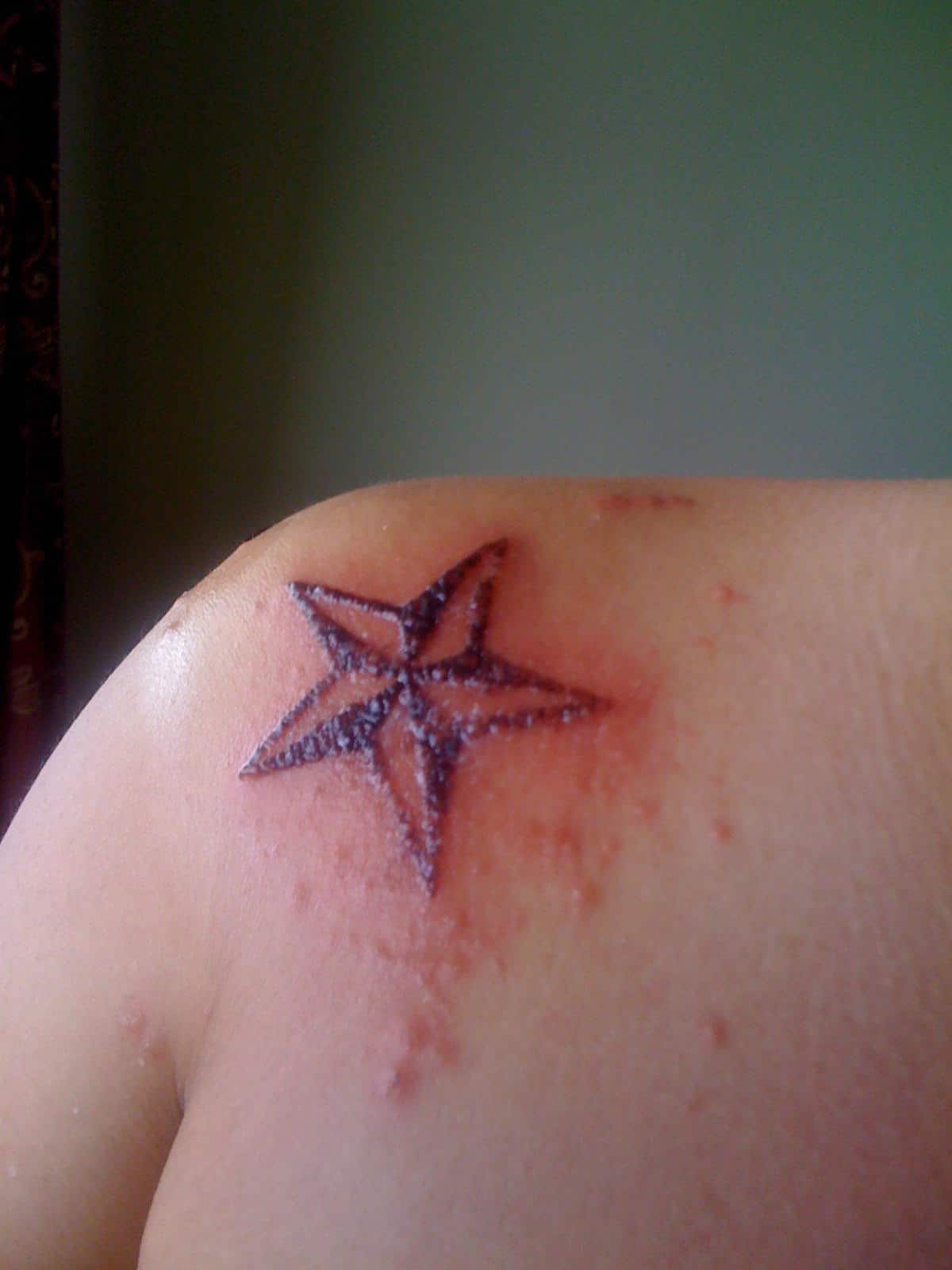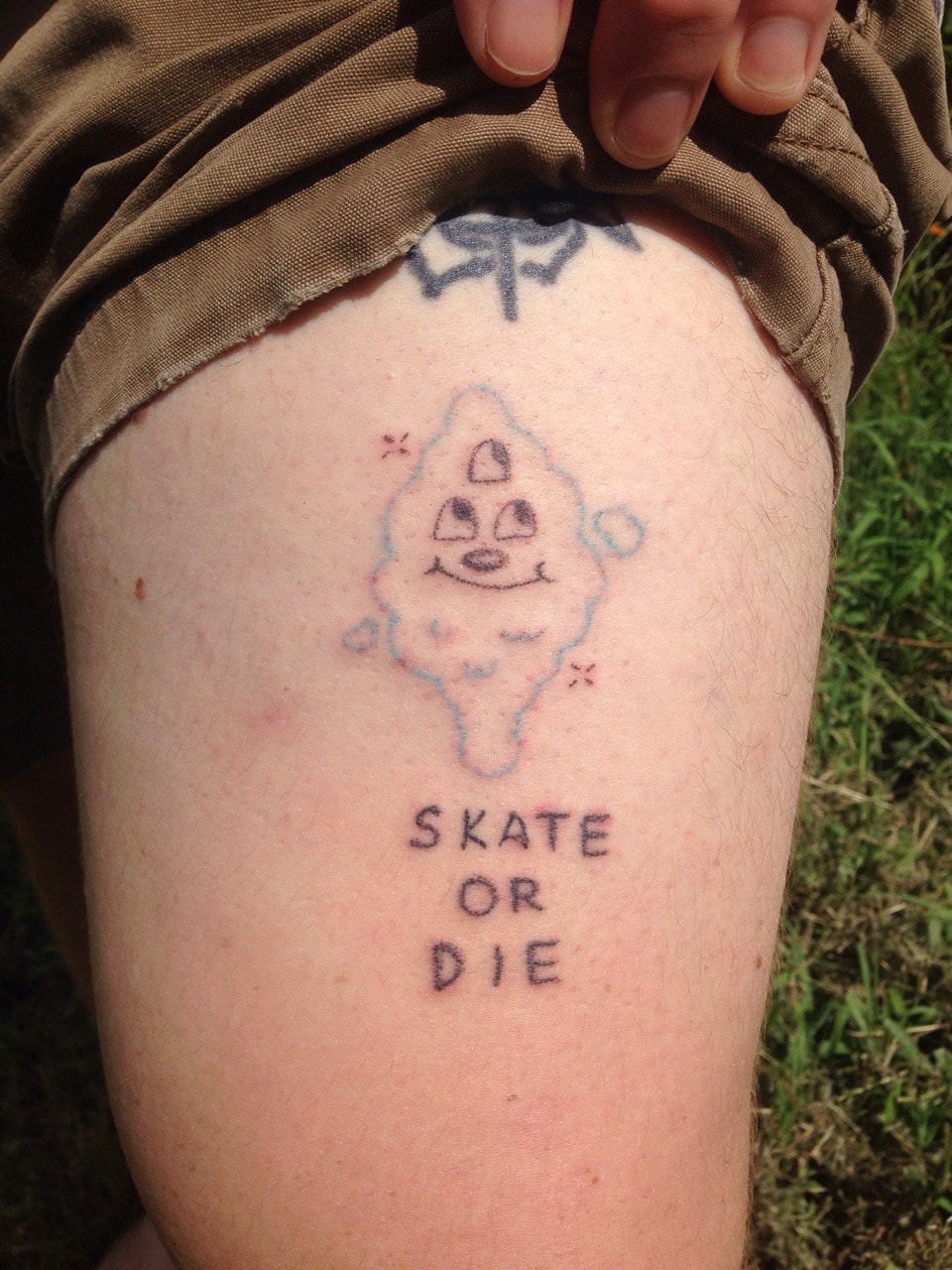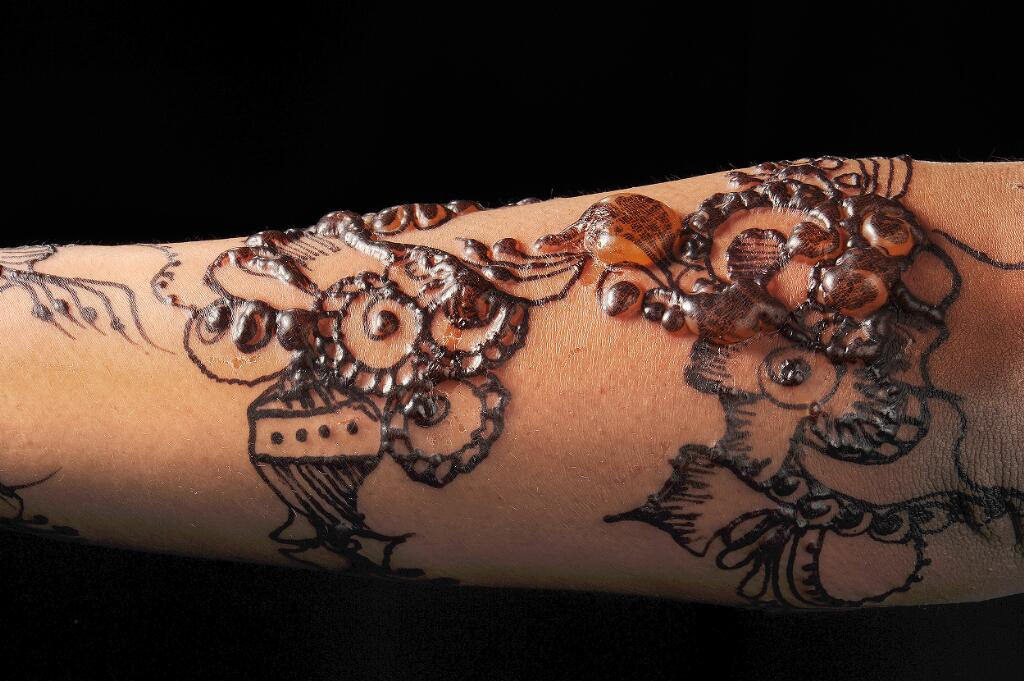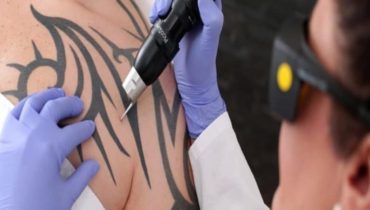When getting a tattoo, most of the individuals are afraid of the pain a tattoo gun piercing through their skins. Other than this, if the common side effects of tattoos affect them, the level of pain further increases. These include infections consisting of various skin anomalies and tattoo allergies. The use of infected tools such as a tattoo gun influences the spread of numerous allergic reactions. Tattoo allergies occur rarely, but they consist of some big medical risks. The injection of simple tattoo ink into your skin is also capable of transferring diseases such as HIV and hepatitis.
What Are Tattoo Ink Allergies?
Contents
They are termed as skin defects after the insertion of tattoo ink into your skin. They occur at the side of a tattoo in the form of an ugly rash or appear as a swelled part of your skin. Such allergies only affect you if your skin gives a negative reaction to the ink injected into your skin. Allergies differ from in terms of skin types. It is essential for you to know that not every skin rash, skin irritation, and swelling occurs due to tattoo allergies.
How to Recognize Tattoo Allergies?
There are many ways in which you can know if you have a tattoo allergy. The most common sign is the excessive pain due to a rash or swelling of your skin around the tattoo. However, there are other ways to determine the presence of a tattoo allergy in your skin. These include high fever, liquid leaking sores, and body pain. Other symptoms include red and hard bumps, infected wounds, and nausea. You can also feel excessive thirst and muscle ache that can be a sign of such allergies.
The skin around the tattoo can often get itchy and irritating showing early signs of a potential tattoo allergy. There are also conditions when allergies affect most of the individuals after a longer time than usual. That’s due to some of the delayed symptoms, which can include rashes and small red bumps. They can increase in quantity over time depending on how well your immune system works. If your body possesses a strong immune system, a potential allergy is easily avoidable. In case of a weak immune system, your skin can swell and thicken swiftly with more sore spots.
What Causes Tattoo Allergies?
The best tattoo artists make use of the best quality of ink for a lasting effect. The ink has to be permanent and should look lively on your skin. Many experts consider the ink used as one of the main causes of tattoo allergies. This is because it consists of certain ingredients and harmful chemicals such as mercury sulfide, manganese, and aluminum. There are others chemicals as well such as iron oxide and some metallic hydrates that can cause allergic reactions. The presence of metallic elements such as iron and mercury is essential for developing most of the skin infections in your skin.
The ink color also plays a major role in the development of such skin allergies as well. Yellow ink and Red ink are some of the most common ink colors, which cause rashes and other skin irregularities. Bacterial infections also frequent causes of tattoo related allergies.
The equipment used in the making of a tattoo on your skin can lead to the transfer of bacteria inside your skin. This can further lead to MRSA infections, which are very difficult to treat. Numerous tattoo artists sometimes use impure water in the process of dilation of the ink. That’s quite a concern as it can cause some NTM infections, which include thickening of your skin that can last for months.
Unclean equipment can also cause tattoo allergies. Sometimes, the tattoo artists forget to clean the needles of the tattoo guns, which are a major concern. This can result in the transferring of certain viral infections in your body such as warts and herpes. The immune system response of your body is also an essential factor that contributes to the occurrence of tattoo allergies. If you have some uncommon immune conditions, then the response time can vary accordingly.
See: 10+ Things You Need to Know About Laser Tattoo Removal
Treatment of Tattoo Allergies
The tattoo allergies often turn out to be contagious which means you need to take some effective measures. There are many solutions that can help you deal with the itchiness and the pain. Antibiotics are some of the easiest ways to get rid of such allergies. Making use of suitable antibiotic ointments is one of the best means to reduce the soreness on your skin.
Most doctors also recommend icing the affected areas. Icing is the perfect solution for minor irritation levels. This is because icing can reduce the impact of the side effects of newly injected ink. Antihistamine medicines are also a great option in case of minor allergic issues that include rashes, swelled skin, and hard bumps. In the case of blood infections due to tattoo allergies, there are certain tests conducted from a tiny skin sample. Professionals working on skin diagnosis mostly do this in laboratories for giving out real solutions.
Visiting a suitable dermatologist is also a smart option in case of tattoo allergies. This will help you know the gravity of the impact of the allergy and an appropriate treatment plan. In case of extreme allergic reactions, the dermatologist will recommend the laser removal process.
The introduction of laser technology has certainly made it easier to remove permanent bumps, skin infection and sore spots. However, a doctor recommends the use of laser technology only when all the previous treatment plans fail. The process involves the complete removal of your tattoo. A cheaper and a comparatively easier method are to make use of common tattoo removal creams. These creams are not as effective as the laser technology but can reduce the effects of the allergy to a certain level.
Not to mention, you don’t want to go for laser removal when you are already having skin-related issues. It is best that you talk to your doctor to know your options.
To deal with excessive pain, your doctor might recommend the use of painkillers. This will help you deal with the side effects of the tattoo with ease.
What to do?
In case you recognize a potential allergy due to a tattoo on your skin, it is important for you to consult your doctor. The doctor will take the required steps to help you out with the dryness and itchiness of your skin. Tattoo removal can be an extremely painful experience for any individual. The process requires the attention of a suitable dermatologist.
A tattoo allergy is not a favorable condition for any individual. There are a few precautionary steps that you can take to prevent the occurrence of such allergies. A patch test is an example of a great safety measure that detects any sign of a negative effect. Before getting your skin tattooed, it is important to get a patch test or a dot test to determine any possible allergy symptoms. After getting a tattoo, you will have to make sure that it gets no contact with air.
The tattoo artist usually bandages the tattoo, which keeps the air out. The artist instructs you to remove the bandage after one or two days depending upon your skin type. You should also frequently clean your tattooed area to prevent the interaction of germs with your skin cells. The area shouldn’t be dry as it can lead to the occurrence of rashes and skin irritations. Making use of a moisturizer is a wise thing to do to prevent such cases. You should also avoid scratching the affected skin. This is because it can lead to further infections and can also ruin the appearance of your tattoo.
A basic thing to ensure is that your tattoo artist makes use of clean equipment and ink of the highest quality. This can prevent the transferring of viral and bacterial diseases that can be hard to cure. You will also have to choose the best tattoo artist with a good reputation. This will help you feel comfortable and reassured about any mishaps such as allergies that can occur.
Conclusion
If you love having tattoos but are a victim of tattoo allergies, some alternatives can help you out. For instance, there are special inks that cause no side effects. Once you find a suitable tattoo artist, you will have plenty of options to get a tattoo without any risks. Moreover, you must realize that care is better than cure. You don’t want to experiment with tattoos if you are aware of your sensitive skin conditions.

